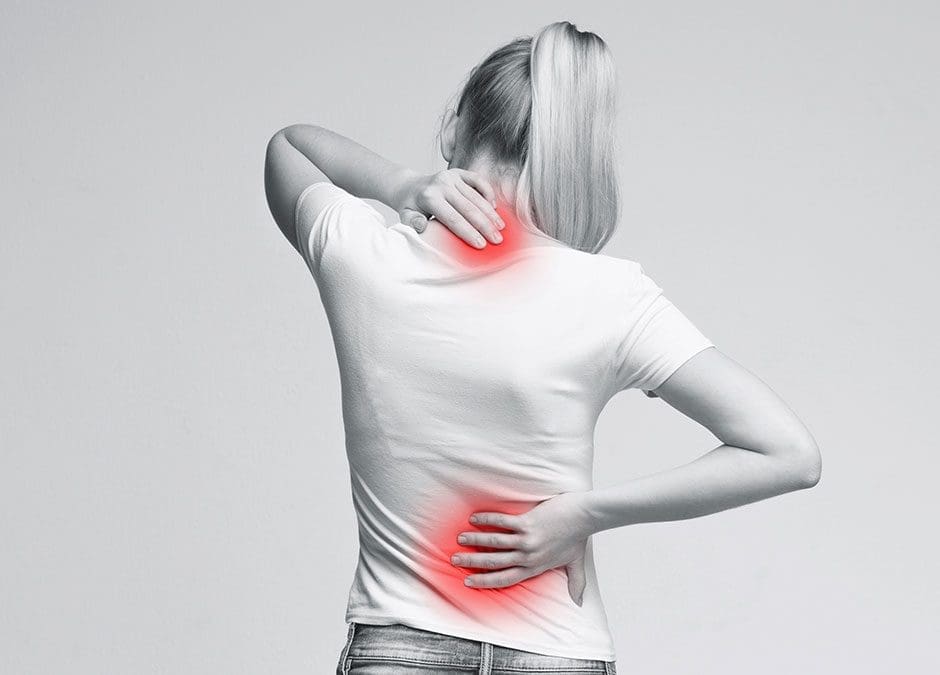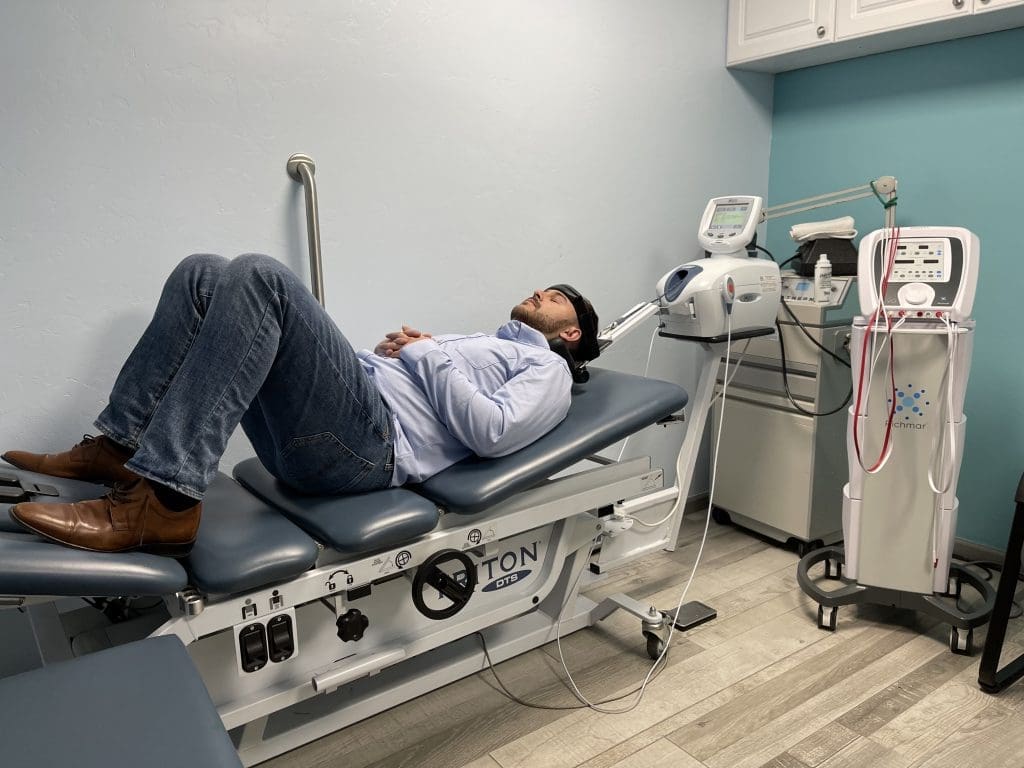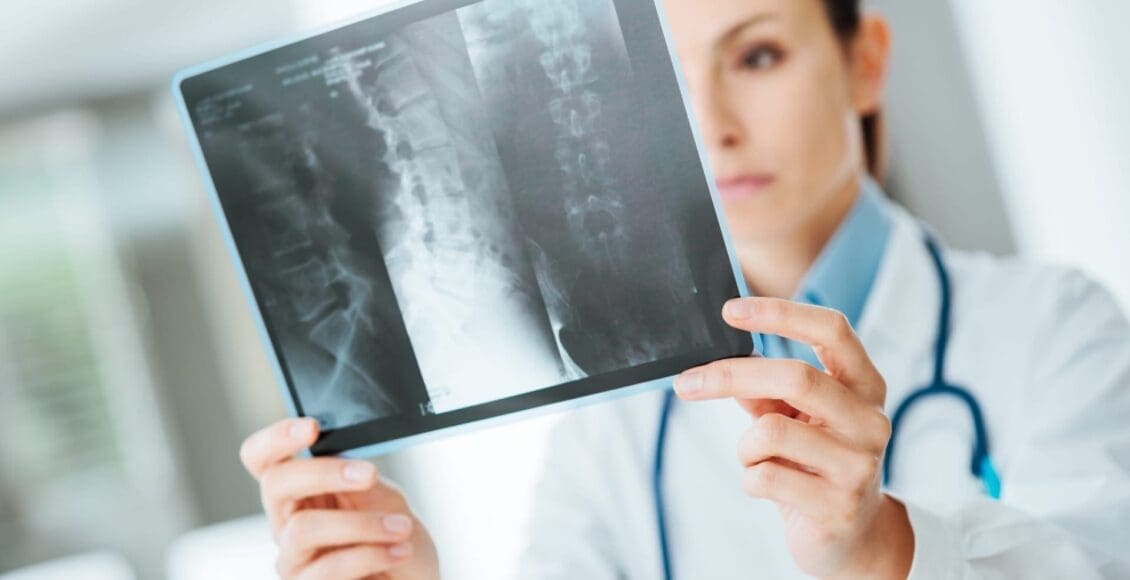Can individuals dealing with neck and back pain find the relief they need from the effects of spinal decompression therapy?
Table of Contents
Introduction
Across the world, many individuals deal with neck or back pain from excessive sitting or standing, poor posture, or lifting heavy objects that cause their spine and muscles to ache constantly. Since the body is in constant movement, the spine is being compressed through repetitive movement that can cause the spinal discs to pop out of their original position and aggravate the surrounding nerves to cause pain-like symptoms in the neck and back regions. Many people start to complain about their necks and backs hurting and feeling referred pain in different locations in the upper and lower body portions. This can range from acute to chronic, depending on the severity of the pain. When people are experiencing these musculoskeletal pain disorders in their bodies, many will seek treatment to alleviate the pain in their necks and backs to return to their daily routines. Hence why, treatments like spinal decompression can have a positive effect on providing the relief that many individuals deserve. Today’s article looks at why the neck and back in the human body are the most common pain areas many people endure and how spinal decompression can reduce neck and back pain. We speak with certified medical providers who incorporate our patients’ information to provide various techniques to relieve neck and back pain from the body. We also inform patients how treatments like decompression can reduce musculoskeletal pain disorders from the neck and back. We encourage our patients to ask intricated questions to our associated medical providers about the pain-like symptoms they are experiencing correlating with their neck and back. Dr. Alex Jimenez, D.C., utilizes this information as an academic service. Disclaimer.
Why Are The Neck & Back Common Pain Areas?
Do you feel muscle tension in your neck after being hunched on the computer or your phone for a long time? Do you feel aches and pains in your back after carrying or lifting a heavy object? Or do you feel tingling or numbness in your arms or legs? Many of these pain-like symptoms are often correlated with neck and back pain that can be a nuisance to many individuals. So why is it that the neck and back of the human body are the most common pain areas that many people worldwide endure? Many people with highly demanding jobs often perform normal movements repetitively, which causes stress on the surrounding muscles, ligaments, and joints, and the accessory muscles will begin to be overworked and tight. Neck and back pain are amongst the most common symptom-related complaints that contribute to high levels of lost workdays, disability, and health care use. (Corwell & Davis, 2020) This causes many individuals to have unwanted socio-economic stress when they visit their primary care doctors. Additionally, neck and back pain are non-neurologic causes in the musculoskeletal system; these can generate pain in the muscles, tendons, ligaments, spinal discs, articular cartilage, and bone. (Meleger & Krivickas, 2007) To that point, when neck and back pain are not treated right away, it can lead to correlating pain symptoms that can lead to a life of disability. Since the spine has multiple structures, from the neck to the lower back, when a person is in pain, it can lead to various pain generators that can cause some visceral pain. (Patel et al., 2015) Hence why, neck and back pain are multi-factorial and lead to numerous disorders.

When it comes to reducing neck and back pain from the body, many individuals will seek medical treatment to relieve themselves from the pain. However, many primary care doctors will assess their patients to determine what the root cause of their pain by taking notes of their daily routine. Many normal causes of neck and back pain can be due to:
- Poor Posture
- Stress
- Physical Inactivity
- Trauma/Injuries
- Excessive sitting/standing
- Lifting/carrying heavy objects
These causes can lead to a life of disability and affect a person’s quality of life; however, luckily, many individuals have researched and looked for treatment that is cost-effective and can help reduce the pain they are experiencing.
Understanding Academic Low Back Pain- Video
Do you feel aches and pains in your neck and back? Do you feel stress in your muscles that cause you to feel miserable? Or do you feel pain in your upper or lower body portions affecting your daily routine? Many of these scenarios correlate with neck and back pain, a common issue many individuals experience. If not treated right away, it can lead to a life of disability and, for working individuals, lose a day of work. However, many individuals seek cost-effective treatments that can help reduce the pain affecting their necks and back. Treatments like chiropractic care, traction therapy, massage therapy, and spinal decompression are all non-surgical, affordable, and can help reduce pain-like symptoms associated with neck and back pain. The video above explains the causes of academic low back pain and how non-surgical treatments like chiropractic care can work with additional therapies to prevent back and neck pain from returning. At the same time, when individuals begin to reduce their workload and educate themselves on what to do to avoid neck and back pain from returning, they can start feeling better. (Tyrdal et al., 2022)
The Effects Of Decompression On Neck & Back Pain
As part of the non-surgical treatments, spinal decompression can help many individuals dealing with neck and back pain. What spinal decompression does is incorporate gentle traction on the spine to decompress the affected spinal disc that can be associated with neck and back pain. When the spine is being treated with spinal decompression, the gravitational traction pull helps produce a greater disc space on the spine to decrease intradiscal pressure and pain. (Vanti et al., 2021) This allows all the nutrients and fluids to return to the spine and spinal discs while promoting the body’s natural healing process.

Additionally, many individuals with neck and back pain will begin to notice a huge reduction in their pain and disability through consecutive treatment. (Vanti et al., 2023) By incorporating healthy habits to reduce the chances of neck and back pain from returning, many individuals can make small changes to their daily routine. This allows them to have a positive outlook and continue their health and wellness journey.
References
Corwell, B. N., & Davis, N. L. (2020). The Emergent Evaluation and Treatment of Neck and Back Pain. Emerg Med Clin North Am, 38(1), 167-191. https://doi.org/10.1016/j.emc.2019.09.007
Meleger, A. L., & Krivickas, L. S. (2007). Neck and back pain: musculoskeletal disorders. Neurol Clin, 25(2), 419-438. https://doi.org/10.1016/j.ncl.2007.01.006
Patel, V. B., Wasserman, R., & Imani, F. (2015). Interventional Therapies for Chronic Low Back Pain: A Focused Review (Efficacy and Outcomes). Anesth Pain Med, 5(4), e29716. https://doi.org/10.5812/aapm.29716
Tyrdal, M. K., Veierod, M. B., Roe, C., Natvig, B., Wahl, A. K., & Stendal Robinson, H. (2022). Neck and back pain: Differences between patients treated in primary and specialist health care. J Rehabil Med, 54, jrm00300. https://doi.org/10.2340/jrm.v54.363
Vanti, C., Saccardo, K., Panizzolo, A., Turone, L., Guccione, A. A., & Pillastrini, P. (2023). The effects of the addition of mechanical traction to physical therapy on low back pain? A systematic review with meta-analysis. Acta Orthop Traumatol Turc, 57(1), 3-16. https://doi.org/10.5152/j.aott.2023.21323
Vanti, C., Turone, L., Panizzolo, A., Guccione, A. A., Bertozzi, L., & Pillastrini, P. (2021). Vertical traction for lumbar radiculopathy: a systematic review. Arch Physiother, 11(1), 7. https://doi.org/10.1186/s40945-021-00102-5
Disclaimer
Post Disclaimer
Professional Scope of Practice *
The information on this blog site is not intended to replace a one-on-one relationship with a qualified healthcare professional or licensed physician and is not medical advice. We encourage you to make healthcare decisions based on your research and partnership with a qualified healthcare professional.
Blog Information & Scope Discussions
Welcome to El Paso's Premier Wellness and Injury Care Clinic & Wellness Blog, where Dr. Alex Jimenez, DC, FNP-C, a board-certified Family Practice Nurse Practitioner (FNP-BC) and Chiropractor (DC), presents insights on how our team is dedicated to holistic healing and personalized care. Our practice aligns with evidence-based treatment protocols inspired by integrative medicine principles, similar to those found on this site and our family practice-based chiromed.com site, focusing on restoring health naturally for patients of all ages.
Our areas of chiropractic practice include Wellness & Nutrition, Chronic Pain, Personal Injury, Auto Accident Care, Work Injuries, Back Injury, Low Back Pain, Neck Pain, Migraine Headaches, Sports Injuries, Severe Sciatica, Scoliosis, Complex Herniated Discs, Fibromyalgia, Chronic Pain, Complex Injuries, Stress Management, Functional Medicine Treatments, and in-scope care protocols.
Our information scope is limited to chiropractic, musculoskeletal, physical medicine, wellness, contributing etiological viscerosomatic disturbances within clinical presentations, associated somato-visceral reflex clinical dynamics, subluxation complexes, sensitive health issues, and functional medicine articles, topics, and discussions.
We provide and present clinical collaboration with specialists from various disciplines. Each specialist is governed by their professional scope of practice and their jurisdiction of licensure. We use functional health & wellness protocols to treat and support care for the injuries or disorders of the musculoskeletal system.
Our videos, posts, topics, subjects, and insights cover clinical matters and issues that relate to and directly or indirectly support our clinical scope of practice.*
Our office has made a reasonable effort to provide supportive citations and has identified relevant research studies that support our posts. We provide copies of supporting research studies available to regulatory boards and the public upon request.
We understand that we cover matters that require an additional explanation of how they may assist in a particular care plan or treatment protocol; therefore, to discuss the subject matter above further, please feel free to ask Dr. Alex Jimenez, DC, APRN, FNP-BC, or contact us at 915-850-0900.
We are here to help you and your family.
Blessings
Dr. Alex Jimenez DC, MSACP, APRN, FNP-BC*, CCST, IFMCP, CFMP, ATN
email: coach@elpasofunctionalmedicine.com
Licensed as a Doctor of Chiropractic (DC) in Texas & New Mexico*
Texas DC License # TX5807
New Mexico DC License # NM-DC2182
Licensed as a Registered Nurse (RN*) in Texas & Multistate
Texas RN License # 1191402
ANCC FNP-BC: Board Certified Nurse Practitioner*
Compact Status: Multi-State License: Authorized to Practice in 40 States*
Graduate with Honors: ICHS: MSN-FNP (Family Nurse Practitioner Program)
Degree Granted. Master's in Family Practice MSN Diploma (Cum Laude)
Dr. Alex Jimenez, DC, APRN, FNP-BC*, CFMP, IFMCP, ATN, CCST
My Digital Business Card


